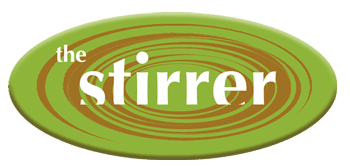



A CURE FOR SOCIETY'S ILLS 18-12-2006 Dr. Peter Mansfield has challenged the medical establishment foryears. In his early career as a GP, he pushed exercise instead ofpills- a viewthen regarded as radical- and in 2001 he fought off the threat of suspension foroffering childrensingle vaccines instead of the MMR jab.Barbara Panvel reportson his latest research whichpresentsdisturbing evidence of a sick society. Dr Peter Mansfield stunned his audience at the Royal Society of Medicine earlier this month when he drew on official statistics to reveal the state of the nation's health: 93% of the people in this country consult their GP each year, on average about 4 times
Long-term ill-health amongst the young is increasing. Death rates are rising for hard-core consequences of our lifestyle such as cancer, digestive disease, mental illness, nervous diseases (multiple sclerosis, Parkinson's disease, Alzheimer's disease and motor neurone disease). A nebulous “ill-defined” category, presumably of deaths which are hard to classify, is increasing steeply. He said that environmental pollution plays a significant part in most of these conditions and medicine offers no remedy for that. His conclusion: "We are barking up the wrong tree”. Of the £466bn spent on behalf of the public in 2005, something like 33% or £155bn was directly or indirectly in response to demand arising from ill-health. That amounts to over £2800 per person. A further £15bn was spent privately (another £237 each) adding up to more than£3000 in all - and the figure is heading steeply off the chart. Two sectors of cost have become more prominent - general pharmaceutical prescriptions at 12.5% and management at 20.5%. Yet thirty years ago the National Health Service cost just over a quarter of that in real terms. Private medicine was virtually non-existent. The alternative is not some other form of medicine - not even holistic medicine - but a return to proper living, making simple choices and inexpensive actions. Reliance on medicines of any kind would be at least halved, and most prescriptions used then would cost pennies rather than £11. Medical demand would decline within a few years, potentially to less than half its present level within a decade. We need to:
With increasingly vigorous health we will have some hope of tackling the challenges ahead which include overpopulation and global warming. With vigorous citizens to choose from, we will no longer elect the mediocre, supine and easily corrupted. With vigorous voters mandating them, politicians will find the courage to act with the rigour that our global situation requires. Arewe a sick nation? And is the way we live responsible? Leave a comment on our messageboard. |
©2006 The Stirrer